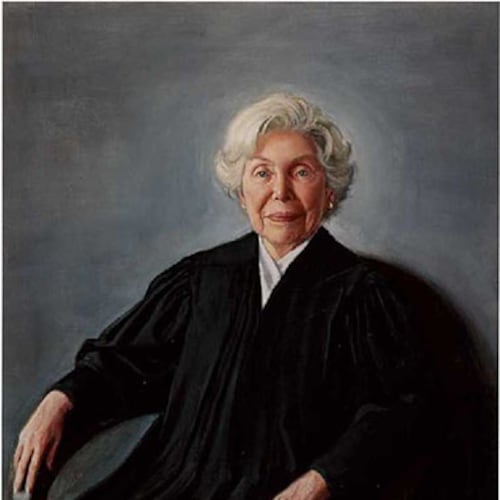It took three votes, but the Senate Judiciary Committee has finally approved legislation to reconstitute the state's judicial watchdog agency and correct unintended problems lawmakers caused a year ago.
Credit: Bill Rankin
Credit: Bill Rankin
Last week, during a lengthy hearing on Thursday, the panel twice failed to pass House Bill 126. At first, to the surprise of many in attendance, the panel voted down the bill by a narrow margin. About an hour later, the committee's chairman called for another vote. That vote, a 6-6 tie, kept the bill alive.
On Monday, Sen. John Kennedy, R-Macon, asked the panel to try yet again. This time, with significant new changes, the bill passed by an 8-2 vote. H.B. 126, already approved by the House, now heads to the Senate floor.
A year ago, state lawmakers, thinking the Judicial Qualifications Commission needed more oversight, put a constitutional amendment on the ballot that was approved by voters in November. But the amendment, it was later discovered, had jarring conflicts with other JQC legislation that passed last year. This led a number of legal experts to say the commission is now without any authority to take action against wayward judges.
That same piece of legislation also sealed from public view most all of the commission's actions and proceedings, including any trials of judges accused of misconduct. Instead of making the process more open, as was intended, lawmakers all but closed off public access.
On Monday, Sen. Elena Parent, D-Atlanta, criticized the committee for "doing the
Credit: Bill Rankin
Credit: Bill Rankin
work that should have been done" before the constitutional amendment was presented to voters.
H.B. 126 is intended to fix the new problems. It also tries to address past criticisms that the JQC did not provide enough due process for judges facing misconduct allegations.
Under the new legislation, the JQC would have a new, two-tiered system of review. In the past, the commission's board not only decided whether to bring disciplinary charges against a judge, that same board also sat in judgment of the case if a judge wanted to fight the charges at trial.
Now, a review panel would decide whether -- and which -- charges should be brought. A separate hearing panel, with different members, would preside over hearings and trials.
But who gets to appoint these panel members had become a major sticking point this legislative session. H.B. 126, when approved by the House, took away the State Bar of Georgia's past ability to appoint lawyers to serve on the JQC board. It only allowed the State Bar to submit a list of recommendations for a few posts.
On Thursday, Kennedy offered a substitute piece of legislation for H.B. 126, which reinstated the State Bar's ability to appoint lawyers to JQC boards. But this did not go over well in the House, where members believe the State Bar have no appointment power.
Kennedy did an about-face on Monday, offering yet another substitute for H.B. 126. This one was almost the exactly same as the bill approved by the House in that it takes away the State Bar's ability to appoint JQC members.
Credit: Bill Rankin
Credit: Bill Rankin
Before the vote, committee chair Jesse Stone, R-Waynesboro, asked State Bar president Patrick O'Connor, who was in the gallery, to comment as to whether he supported the most recent version of H.B. 126.
The State Bar has long advocated to have direct appointments to the JQC board, O'Connor said. But the legal group is changing its position after being asked to do so by the Georgia Supreme Court, he said.
O'Connor applauded the new, two-tiered review system. He also said the Legislature had to correct its mistake of closing JQC hearings and proceedings to the public.
"For that reason, we believe the good outweighs the bad," he said.
About the Author
The Latest
Featured





